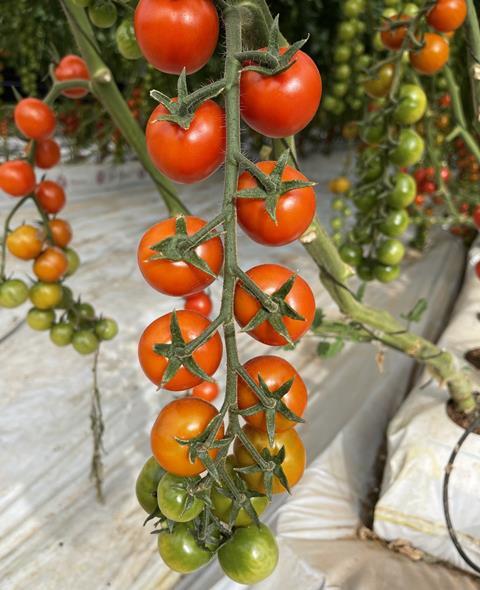The Moroccan group is investing in new ways to reduce its impact on the environment, prioritising packaging waste, water efficiency and organic waste recycling
In much of Europe, including the UK, soaring energy prices have forced tomato producers to limit their production or even consider leaving the business. This is placing ever greater responsibility on overseas producers in countries like Morocco to keep the retail shelves stocked.

Duroc, a member of Delassus Group, produces and exports snack tomatoes for 12 months of the year, with the aim of combining top taste with affordability. The company produces 65,000 tonnes of snack tomatoes on 600ha of land between Agadir and Dakhla and commands a 32 per cent share of the UK market and 12 per cent of the German market.
For Duroc, a major reason for the group’s growth over the last 30 years has been its commitment to sustainable development. “We set up an effective CSR committee to structure our ambition, to lead and to support the implementation of actions that will be validated by the Delassus Group board of directors,” said Kacem Bennani Smires, CEO of Delassus Group.
Both the shareholders of the Delassus Group and the management want to be part of an organised, measurable CSR approach, he confirmed. Although the group has already had its carbon footprint audited by Bureau Veritas, and says that the arboricultural part of the business sequesters more carbon than it produces, Duroc is clear on the need to reduce its impact through further actions.
Three focuses for the company are reducing packaging waste, optimising water usage and recycling organic waste.
“Besides helping the planet, new practices can have a positive financial impact,” Duroc stated. “For example, reducing the use of packaging materials can reduce spending and improve fuel efficiency. Solar energy has proved to be extremely beneficial not only for the environment but also for the business as per the experience conducted in the citrus field within Delassus Group. The investment is ongoing in Duroc as well.”
When it comes to its employees, Duroc said its focus was on retention and engagement, limiting the use of temporary workers by offering benefits such as support for health, team building, providing transport and sponsoring educational support for workers’ children.
“For community engagement, Duroc has come up with many ways to give back, including fundraising via the Fairtrade programme with Coop’s UK consumers and Keelings,” the company stated. “Duroc is on the verge of constructing a pre-school for the benefit of 300 children in neighbouring communities, including its workers’ children. The allocated budget for this is €500,000.”
However, the company also offered a reminder that to be sustainable, a business must also be profitable. “Profitability is about compliance, proper governance and risk management,” the company stated. “Duroc has evolved over the past decade to become more complex with increased investments. Governance had to be reviewed to ensure that it could continue to develop safely. Duroc was managed directly by the shareholders: Zhor Bennani Smires and Kacem Bennani Smires. But they decided to review the organisation and get out of operations so they could play their full role as shareholders. They decided to entrust the management of Duroc to an experienced and talented managing director.”






No comments yet